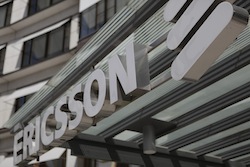Ericsson and Australian operator Telstra have announced the first commercial trial of LTE-Advanced (LTE-A) Carrier Aggregation technology on 1800MHz and 900MHz spectrum bands.
LTE Carrier Aggregation enables operators to make the most of their existing spectrum assets by combining multiple spectrum bands to enable higher mobile broadband download speeds.
Håkan Eriksson, Head of Ericsson Australia, New Zealand and Fiji, said that many operators around the world have spectrum available in the 1800MHz and 900MHz bands as they migrate subscribers from 2G to 3G or 4G.
Mike Wright, Executive Director Networks at Telstra, said the operator’s LTE subscriber numbers are growing “dramatically”, with nearly three million subscribers currently using the LTE network, up from 2.1 million six months ago.
The operator transferred data across its live network on a number of sites in Queensland on 31 July.
“The capacity, higher data speeds and efficiencies provided by LTE-A will help manage growth in data traffic as more customers choose our network. This will allow us to continue providing additional capacity and high-quality service,” Wright explained.
“When we get access to 700MHz spectrum in 2015 we also intend to deploy the next-generation of LTE-A by combining larger blocks of spectrum in the 700MHz and 1800MHz bands to deliver blistering peak speeds in the theoretical range of 300Mbps.”
Added Eriksson: “Many operators will be watching the Australian deployment of LTE-A on these spectrum bands.”
In June, Austrian operator A1 Telekom Austria revealed it had conducted a successful demonstration of LTE-A aggregation using base station technology provided by Ericsson and Nokia Siemens Networks.
UK operator EE, which launched its 4G LTE services last year on refarmed 1800MHz spectrum, announced in April that it will be trialling carrier aggregation this year.


